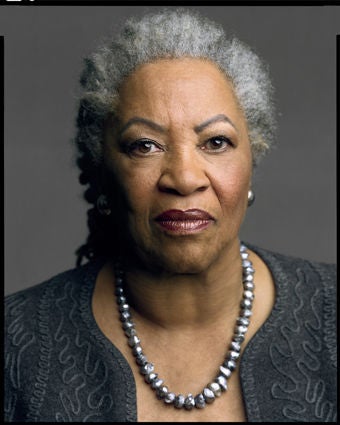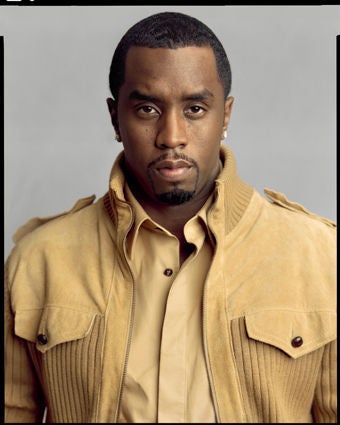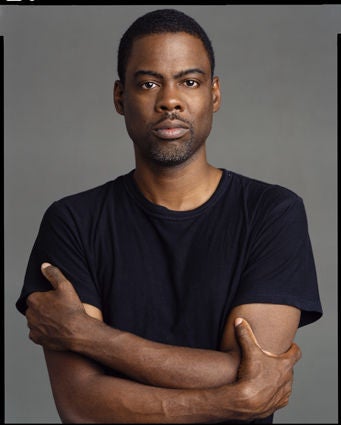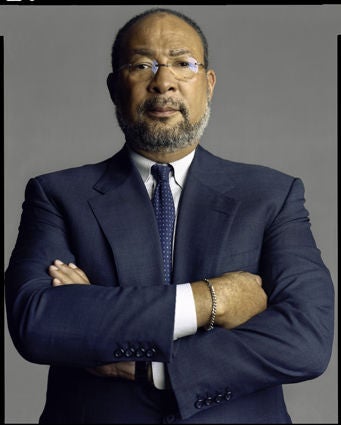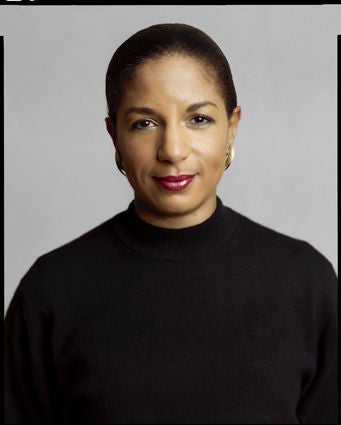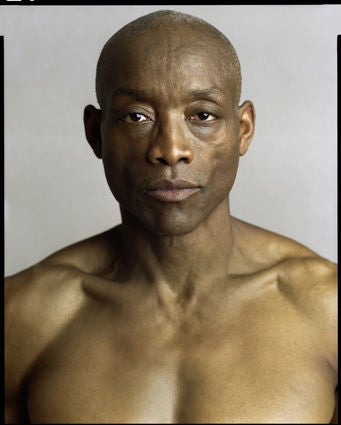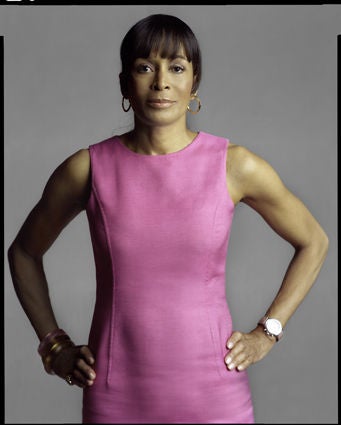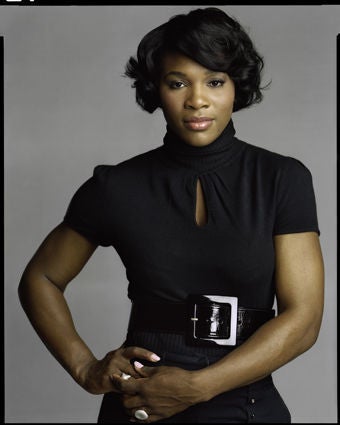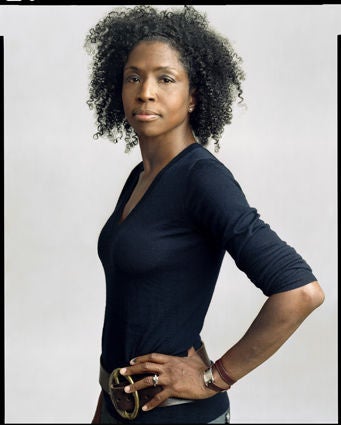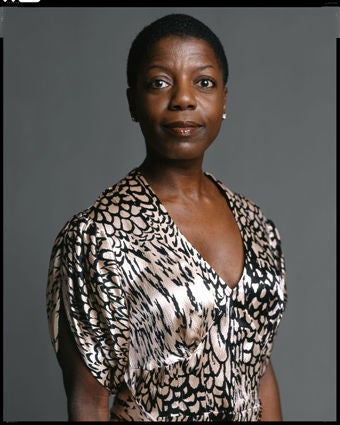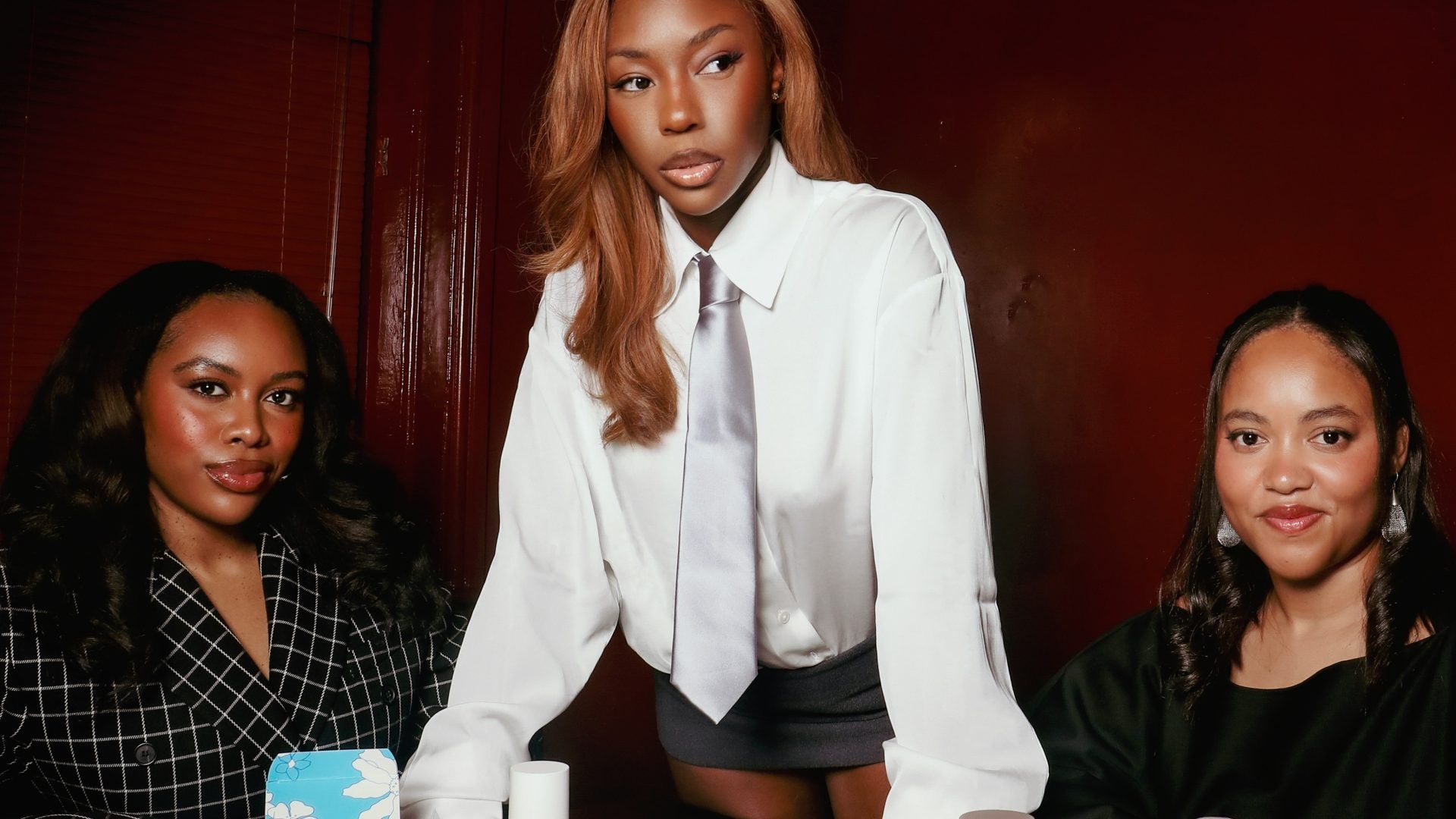The 1993 Nobel Peace Prize winner continues to explore stories
about Black life.
“Almost all of the African-American writers that I know were very much
uninterested in one particular area of the world, which is White men,” she
says in “The Black List.” “That frees up a lot. So once you erase that from
your canvas, you can really play.”
For more information on the documentary and art exhibit, visit
blacklistproject.com
This entertainment mogul is living proof that dreams are attainable through hard work.
This acclaimed comedian’s take on race relations in America has been a
cornerstone for much of his work.
“My dad used to say, ‘You can’t beat White people at anything, ever. But you
can knock ‘em out. Like, if you have six and the White guy has five, he
wins. If you’re Black, you can’t let it go to the judge’s decision, because
you’re gonna lose no matter how bad you beat this man up.’ You’re
always Black. There’s always going to be an overreaction one way or the
other regarding your presence, be it good or bad.”
President-elect Barack Obama called on this global business leader for his economic insights soon after the election. As former CEO of AOL Time Warner, Parsons knows the weight of being one of few top Black executives.
“Two things were a part of my upbringing that I don’t think most white Americans would relate to. First, I cannot tell you the number of times that I was told that when I was a kid, ‘You know, you’re gonna have to work twice as hard to get half as far.’ And two, I remember almost as if it were yesterday, my grandmother, she’d say, ‘Now remember, you want to be a credit to your race.’ It was as if you were carrying a responsibility, not just for yourself or even your family, but for a whole category, a group of people.”
This Rhodes Scholar has put her education to work for research and aid in African Affairs. She took a leave from her work at the Brookings Institution to serve as foreign policy adviser for President-elect Obama.
“It’s old thinking to assume that what’s good for African-Americans is the opposite of what’s good for White folks. Why do we have to have that zero sum mentality at this point? Why can’t we all get better health care and better education? I’m an optimist. And so when I get angry, it’s easy for me to channel it into just doing more and doing it harder and trying to do it better.”
This classically trained dancer continues to choreograph for leading companies. He won a Tony Award in 2007 for Best Choreography for “Spring Awakening.”
“Blackness should take a second level to the concern I have about human commonality. Transcendence. In everything that I attempt, is there a level of honesty and rigor that is inflected with all that I am, what I have gotten from the Western, modernist tradition…What I have gotten from my mother and father who were the conduits for Black culture for me, what I’ve gotten from being a working-class person. Is it all there? Is it cooking,”
he says.
Even after retiring as the youngest and first African-American president of the Planned Parenthood Federation of America, this former midwife continues to fight for women’s rights.
“I’m really sorry that my daughter didn’t have an opportunity to grow up in a segregated African-American community, as I did in the early years of my life in St. Louis, where the lawyer lived next to the house painter…That can have an enormously powerful influence on the community and the value of keeping and raising our children properly.”
Tennis has never been the same since Serena and big sister Venus stepped onto the court. When she’s not breaking world records, she dedicates time to ensuring all children have a fair chance at success through the Owl Foundation.
For more than 20 years, this photographer has captured the stories of our time through her lens and displayed them around the country.
“My strongest memory is listening to Richard Pryor albums in our house as a child, like during the day in the summertime. It was an amazing use of language and description, drawing a picture of American life as well, that he depicted in his performances. Within America, there is this thing of just trying to define ethnicities very narrowly, and forgetting the history.”
Throughout her career, the current executive director and chief curator at the Studio Museum of Harlem has bedazzled art lovers with exhibits and explored serious issues with striking creativity.
“One of the funniest experiences I had when I began working in the art world is that people always assumed I worked for Thelma Golden, not that I was Thelma Golden. The kind of dismissal that comes from just people’s sense that they don’t imagine you are who you are actually has been one of the most powerful and liberating things for me in my work.”
